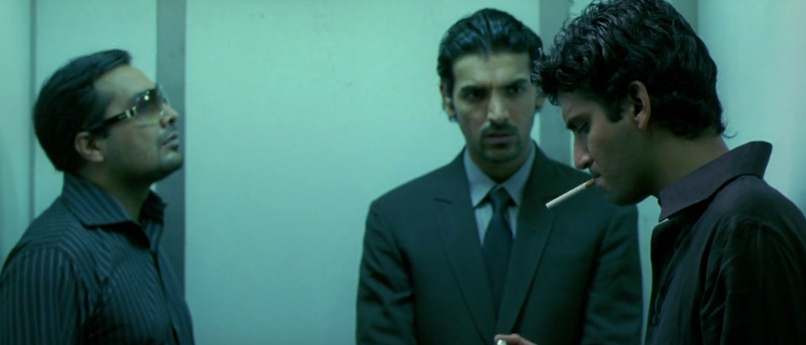15 years of No Smoking, 15 years of deciphering it’s Antar Aatma…
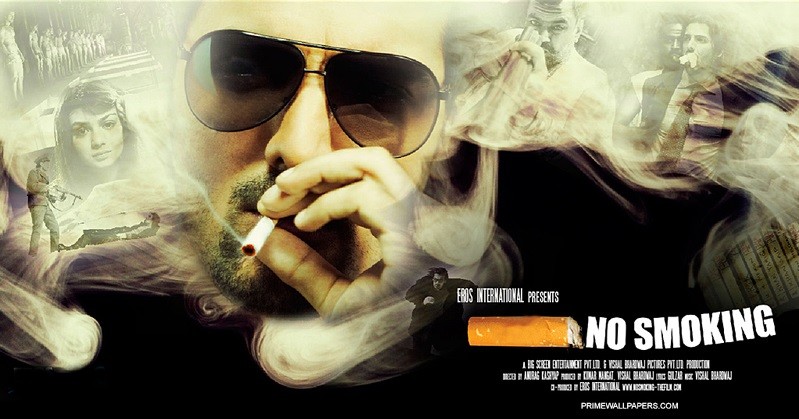
2007 was a great year for Hindi Cinema. It gave us some of those successful movies that carved templates for future ones, it gave us some ground breaking marvels, and it gave us this one movie that alone provided enough material to have elaborate philosophical discussions, to ruminate endlessly on individual freedom and authority and also provided a window to look beyond the brinks of typical Bollywood masala to the fascinating world of World Cinema. This movie was Anurag Kashyap’s No Smoking.
Released on 26th October 2007, along with the much iconic, much celebrated new age romantic drama Jab We Met, No Smoking was actually a big box office disaster on it’s theatrical run, despite being made on a modest budget. Made at a budget of around 7.5 crores, it managed to collect only a little over 3.2 crores. But this so called “failed” movie by those who are were concerned exclusively with box office collections later managed to collect it’s own faithful and dedicated audience. It became a cult classic. This movie served the perfect fodder for a lot of movie fanatics, cinéphiles like me, who bloomed around that time. I remember coaxing four or five of my buddies back then to watch No Smoking over Jab We Met when these two movies released. I told all of them, that this movie is from the same guy who made Black Friday, and that it would be great. After the movie got over, I remember just how perplexed and confused my lovely buddies were with what they had just watched, some of them had even landed blows on me, for making them go through it.
I too couldn’t fully understand this movie when I watched it first time. I was very used to routine Bollywood and big budget franchise driven Hollywood movies, this was a movie beyond whatever I had seen back then. But this movie had me deeply intrigued and invested into it. I could make out this movie was actually projecting very bold ideas, was displaying a world view, which was very rebellious and gritty. Off course over time I re-watched, re visited this movie many times, admiring it more each time. Over the years I also found more people who also felt the same way about this movie, I remember having these elaborate discussions on this movie’s philosophy, that’s when I realised this movie’s far reaching effects.
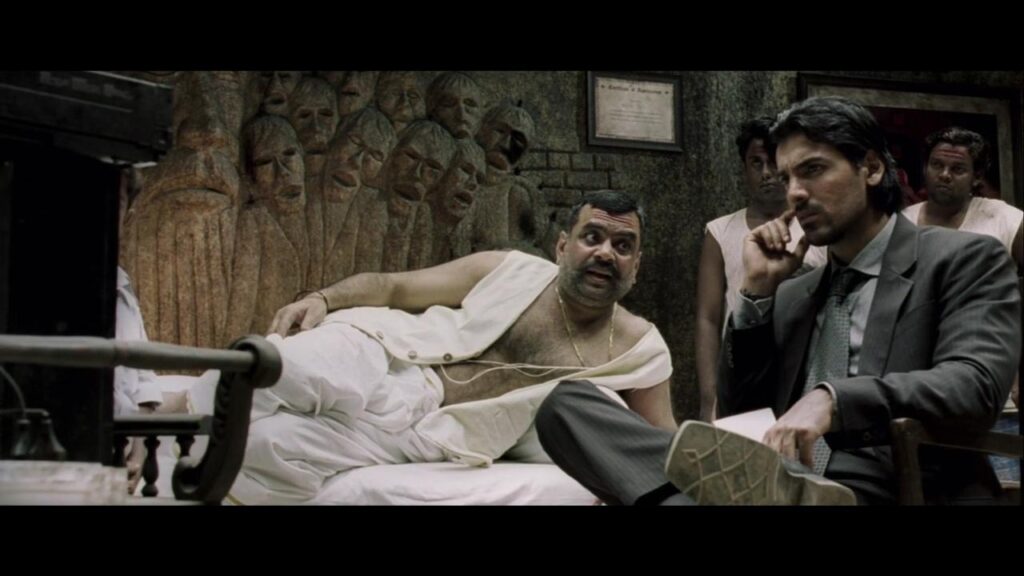
So the movie actually begins with quotes
“To be is to do- Plato
To Be is to do- Socrates
Do Be Do Be Do- Sinatra”
These lines used to appear in washrooms across 1960’s to 1970’s in United States many times often crediting different authors. They became more famous by novelist Kurt Vonnegut in his novel Deadeye Dick. However one may interpret the existence of this quote I feel it’s just there to instil a sense of randomness and quirkiness.
We then cut to our lead protagonist K’s Siberian nightmare. Where he wakes up in a snowy Siberian surrounding in a camp where some military personal are keeping him captive. They are keeping him in surveillance. They have provided him with Vodka in his room but not cigarettes, the commodity he most needs. He tries to ask his captors for it but they refuse to provide it to him. From the view from his window, K sees his bathtub in the middle of the snow on a hillock. It makes him smash the glass window of his room, makes him run through the harsh snowy terrain with a Russian military soldier following him. He notices a pack of cigarettes just beside the bathtub. He dives for the pack, despite already being shot by the soldier. He holds a cigarette between his lips and asks the ferocious soldier nearing him for a lighter or match box. This nightmare represents both K’s extreme smoking addiction and his scuffle with authority figures.
Note, it is very soon established in the movie that smoking is an allegory, metaphor, a symbol for personal freedom. The freedom to be just be oneself, the freedom to live one’s life the way one wants. Even the most unpleasant, most selfish, self obsessed individual very much deserves this freedom. K is very much this kind of person. He comes from an affluent, elite urban background. He lives in a high rise Penthouse in Mumbai, runs an apparently prosperous corporate company, he is a through and through egoist. He cannot tolerate being told to do anything. He looks at his reflection in the mirror of his bathroom sporting his long hair, French beard and Aviators and says “Nobody tells me what to do.” He is continuously seen behaving very badly with his wife, he snaps at her whenever she contradicts him, he lights up left, right and centre. He even throws out an elderly woman who is in an elevator along with him, because she expresses her displeasure to his smoking.
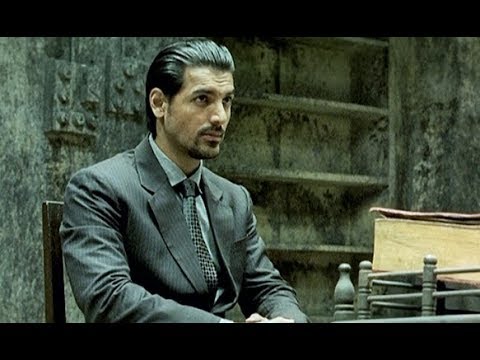
No Smoking as told many times by Kashyap is adapted from two sources, it’s plot, at least the first half is adapted from Stephen King’s short story Quitters, Inc., while thematically it draws heavily from Franz Kafka’s The Trial. The protagonist of The Trial was called Joseph K., that’s where the protagonist of our movie gets his name from. In the Trial, Joseph K. is suddenly arrested by a remote inaccessible authority, he is later prosecuted by them with the nature of his crime neither revealed to K., nor the reader. It depicts the evils of totalitarianism, something which even No Smoking depicts. The initial scenes inside the Prayogshaala, accurately show how it is so close to hell. The structure of the place itself is such. K is first made to climb down what looks like a submarine ladder into a whole underground facility. Stairs keep going more and more down that too in a disorganized manner, once he reaches the absolute bottom, he is able to meet the person in charge, Shree Shree Prakash Guru Ghantaal Baba Bangali Sealdah waale. It’s interesting to note that we do get an unusual cameo here of Piyush Mishra in pictures as Baba Bangali’s mentor Gurudev Baba Bangali. Baba Bangali played by Paresh Rawal is unapologetic dictatorship, absolute authoritarianism personified. His decisions, his judgement rides over everything. He does not tolerate any kind of counter reasoning, or resistance to his ways. He says that in his Paatal Lok or underworld his word is final. It’s here during K’s first meeting with Baba, that Baba Bangali talks about the inner soul or Antar Aatma. He says “Aatma hai toh shareer Ishwar hai, Aatma nahi toh Shareer nashwar hai.”-The body is useful only because of the presence of the soul. He goes on describe the traits of the inner soul saying “Aatma antaraatma Chanchal hoti hai, bhogi hoti hai”- The inner soul is frivolous and indulgent. He further says that at birth the inner soul is pure, later it gets corrupted due to many indulgences by the person. This discussion on the inner soul is important to the movie as later on, Baba Bangali actually manages to take out K’s inner soul and viciously tricks the soul into purging it for good. This movie looks at the concept of the inner Soul or Antar Aatma in a different light. Here Antar Aatma is one’s inner voice, ability to reason, denial to confirm, all those traits that makes a person true to their inner self. So even after losing the soul a person may still be alive here. Baba Bangali is that guy who takes away the most truest attributes of his patients, and purges them if they do not confirm to his ways. He also refrains from doing so if the patients pay him one rupee in cash. The concept of one rupee for shagun or prosperity is given it’s own twist here.
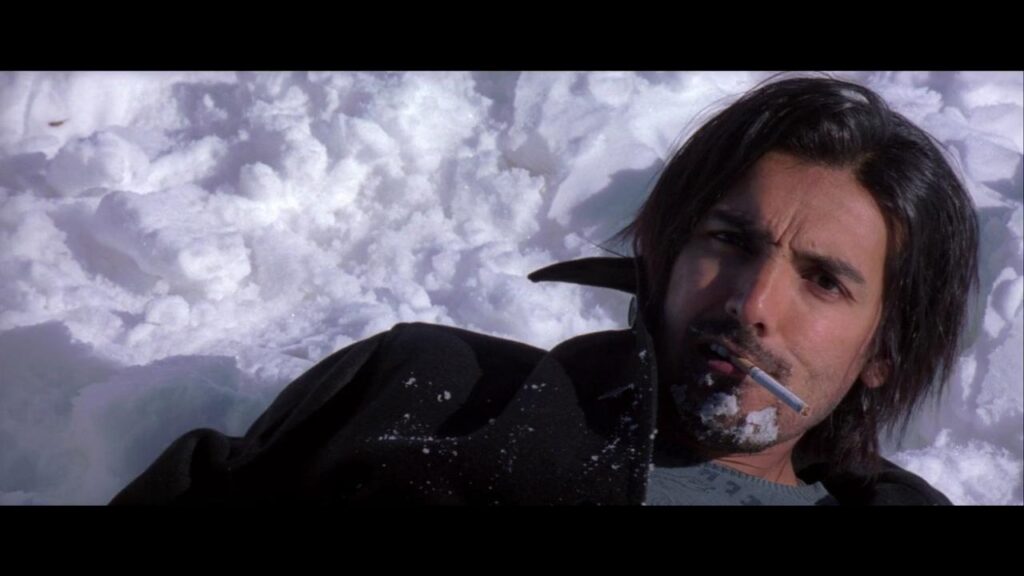
It’s here in that we truly understand the extent to which No Smoking was a personal movie for Kashyap. He has mentioned in many interviews that a Censor board person had once told him that cinema is about healthy entertainment, and that his movies were neither healthy nor entertaining. This statement had irked Anurag Kashyap. The fact that a person in power was allowed to have a final word on his work, and thereby decide if his work was suitable enough to be allowed to be viewed by all. He was affected by all the totalitarianism. Also No Smoking was made at a time when Kashyap was in one of his worst career phases. Three of his pervious movies were stalled, the industry was not being nice to him, all that angst poured into scripting of this movie. It’s not unlikely that K could also stand for Kashyap.
Soon after the movie’s underperformance, Kashyap had written a blog on Passion for Cinema site on 15th November 2007 called “In defence of the ‘I’”. There he wrote “what’s the best way i can say what i want to say, because what i want to say i already know, and i also know if i say it directly they wouldn’t let me” .. so if i do not find the perfect symbolism should i not say it? should i shut up? looks like? should i let go of my soul? what does my soul signify? is it not me? me with my imperfections?” emphasizing on the use of allegorical to make a bigger philosophical statement.
One interesting observation regarding why K’s Antar Aatma loses to the Baba in the end was explained in this blog too. Kashyap wrote “from the point K falls into the water in the police station(there is a voice over there too- jin jin logon ne poore paise nahi bhare hain etc,that connects it with the last scene), it is the journey of the soul, by which i mean the internal agony of the man, trying to make a choice, trying to decipher what did he do to deserve this, is this the price one pays for his ego, to choose between the cigarette and the bathtub, and when he chooses the bathtub he is choosing to negate himself hence being completely owned by the baba..”
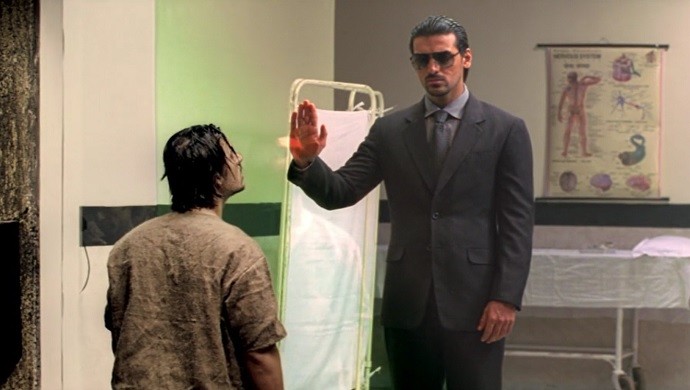
One of the other important characters of the movie is the guy named after a popular writer-director from Hindi cinema, Abbas Tyrewaala played by Ranvir Shorey. Abbas plays the scheming friend who enrolls K into Prayogshaala. He does it for his selfish motives. There are tonnes of Easter eggs and smart references in No Smoking. There is a blog by Pankaj Sachdeva on the movie which explains all of them very elaborately. This blog was written on the movie’s 10th anniversary in 2017. I highly recommend reading it. Also do check out Anurag Kashyap’s own article “In defense of the ‘I'” written just days after the movie’s release.
There is one particular sequence in No Smoking of K trying to escape into the vast expanse of the world, to the extent of himself not knowing where he is and attempting to sneak a smoke. That sequence very clearly seemed like a love letter to a similar sequence in David Fincher’s Fight Club.
Overall I’d conclude by saying No Smoking is one of those unique unforgettable movie going experiences. Liking it, hating it, agreeing to it or disagreeing to it, all that aside, you will certainly remember it for very long.
